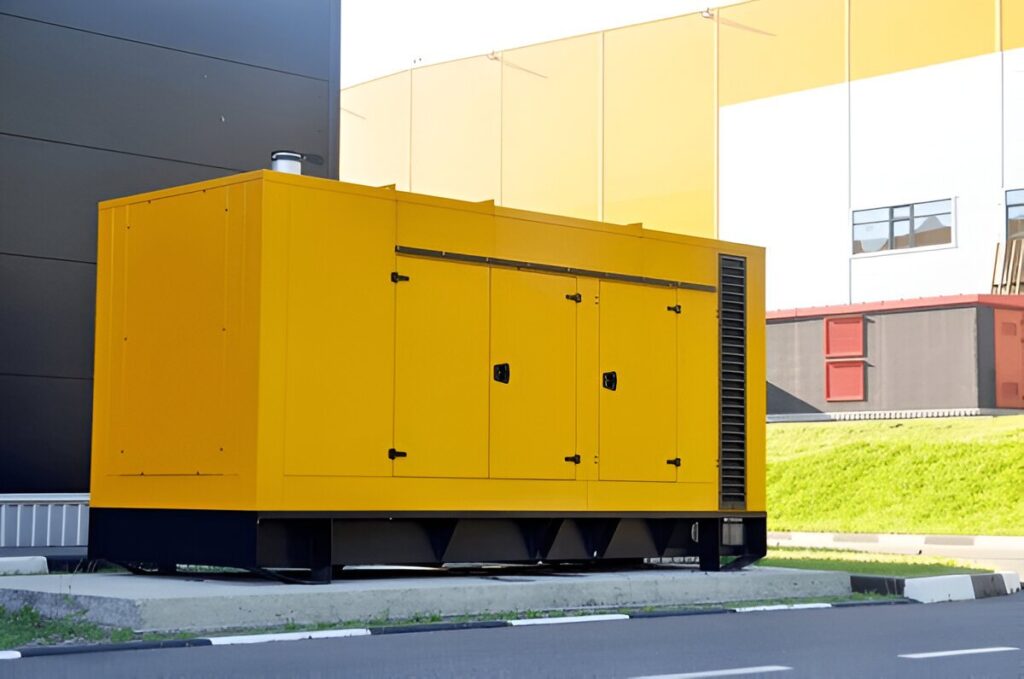Diesel generators are widely used in Canada for backup power, industrial operations, and remote locations where grid electricity is unavailable. However, understanding fuel consumption in diesel generators is crucial for managing operational costs, efficiency, and sustainability. In this guide, we will explore the key factors that affect fuel consumption and how to optimize your generator’s performance.
Factors Affecting Diesel Generator Fuel Consumption
1. Generator Load Capacity
Fuel consumption in a diesel motor generator depends largely on the load it carries. Running a generator at partial load significantly reduces efficiency, leading to higher fuel costs per kilowatt-hour. Ideally, diesel generators should operate at 70-80% of their rated capacity for optimal efficiency.
2. Engine Efficiency and Technology
Modern diesel generators, such as those from Caterpillar generator company and Cummins generator Canada, use advanced technology to improve fuel efficiency. Features like electronic fuel injection and variable speed operation help reduce unnecessary fuel consumption.
3. Fuel Quality and Type
The type and quality of diesel fuel used in diesel fueled generators impact efficiency. Using high-grade, low-sulfur diesel enhances performance and reduces emissions, ensuring better fuel economy.
4. Generator Size and Model
Different generator models have varying fuel consumption rates. When looking for a generator for sale, it’s important to compare fuel efficiency ratings and select a model suited to your specific power needs.
5. Maintenance and Upkeep
Regular maintenance plays a crucial role in keeping fuel consumption at optimal levels. A poorly maintained generator can consume more fuel due to clogged filters, inefficient combustion, and mechanical wear. Ensuring proper servicing of components like the generator enclosure also helps in maintaining efficiency.
Fuel Consumption Estimates for Diesel Generators
Fuel consumption varies depending on generator size and load. Below is a general estimate of fuel usage per hour for different generator sizes:
| Generator Size | Fuel Consumption at Full Load |
|---|---|
| 10 kW | 1.2 – 1.5 liters per hour |
| 50 kW | 8 – 10 liters per hour |
| 100 kW | 18 – 22 liters per hour |
| 500 kW | 90 – 110 liters per hour |
| 1000 kW | 190 – 220 liters per hour |
These figures vary based on generator model and efficiency.
How to Optimize Fuel Consumption in Diesel Generators
1. Choose the Right Generator Size
Overloading or underloading a generator leads to fuel inefficiencies. Before purchasing, ensure you select the correct size by calculating your power requirements. When looking for a used generator for sale, verify its efficiency and maintenance history to avoid excessive fuel costs.
2. Use Load Management Techniques
Implementing load management strategies, such as peak shaving and load shedding, helps distribute power usage efficiently and prevents unnecessary fuel wastage.
3. Invest in High-Efficiency Models
Generators from reputable brands like Caterpillar generator company and Cummins generator Canada are designed with fuel-saving features. Investing in a high-efficiency model pays off in the long run.
4. Regular Maintenance
Routine maintenance, including oil changes, air filter replacements, and fuel system inspections, ensures your diesel fueled generators run efficiently.
5. Improve Ventilation and Cooling
Ensuring proper airflow and using a well-ventilated generator enclosure helps maintain optimal engine temperatures, reducing fuel consumption due to overheating.
Conclusion
Understanding fuel consumption in diesel generators is essential for businesses and homeowners looking to manage energy costs effectively. By selecting the right generator, maintaining it properly, and optimizing load management, you can significantly reduce fuel expenses. Whether you’re looking for a generator for sale or a used generator for sale, BC GENERATORS provides a wide range of high-efficiency options tailored for Canadian conditions.





